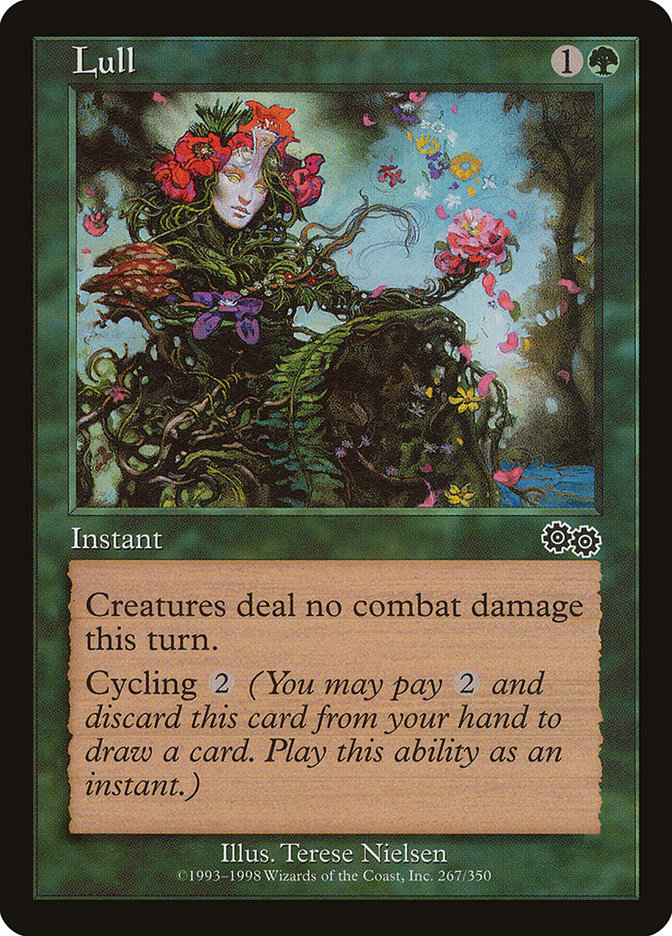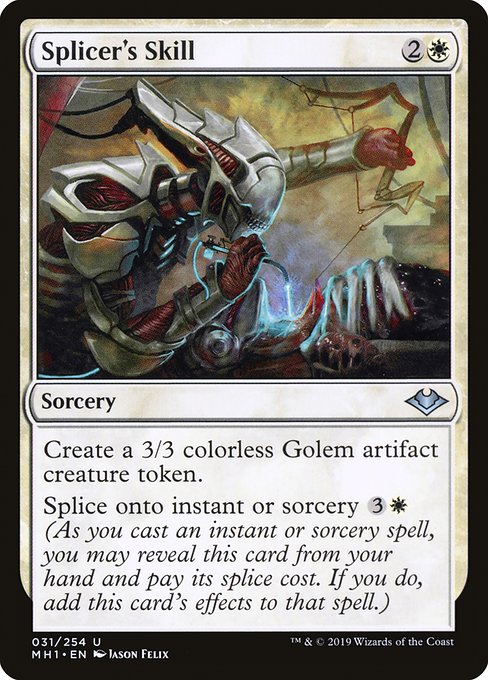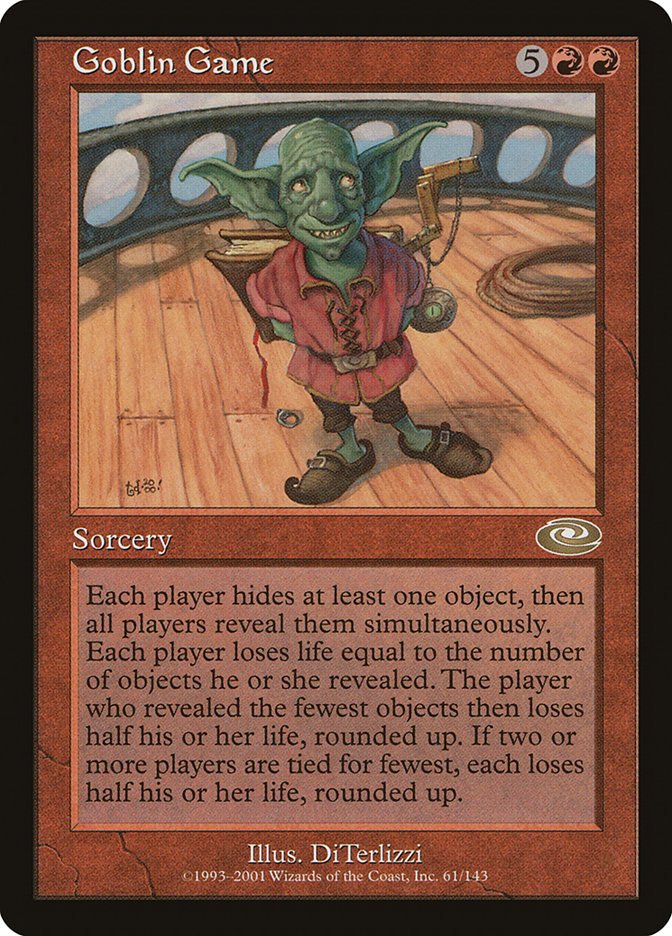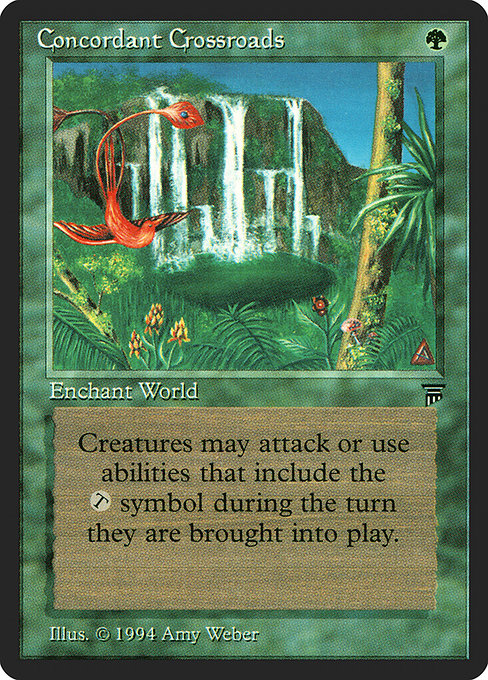I am at a nice lull in the homemade cube project. The second run of cards are out, well palyed and understood. They fixed most of the problems, and the new problems with them, and the cube at large are mostly now known too. The really problematic cards, boring cards, and bad cards, are all cut and there is a relatively small waiting list of tuning tweaks to existing cards and some new designs not far off ready to print for the third run. Rather than rushing this through as I did with round two of the card prints, I am going super slowly. This has all been the case for some weeks and I expect to stay that way for many more with relatively little change or progress. It very much feels like the time in the creative process to simple let it brew in the background. Not apply much active thought, let the enthusiasm recharge and let the subconscious ruminate over it all.
I attribute a large part of this lull to a directional choice that needs making in regards what I want my homemade cube to be. It was not even a question I was aware of when I embarked upon the project. Recently most of the group I cube with went on holiday together and a bunch of other gamer mates. There was like 20 of them with more than enough for some 8 man events. They wanted to take the homemade cube with them and I was happy to oblige with some outside testing being of much interest. While they were away playing that, I did my first cubes using my main cube since getting the homemade stuff. The experiences of those main cube games after so long and the feedback from the strangers all pointed towards the same thing. Do I want poker Magic or do I want chess Magic?
These are the best ways I can think to shorthand the directions I can go in but I shall elaborate. Neither is better or worse than the other, it is simply a preference. My homemade cube was described as "too smooth" and "lacking jeopardy" which are reasonable criticisms. The huge consistency, option density and reasonable power level of threats in my cube ensures you are losing to screw and flood infrequently nor getting beaten by a god draw. You get to play your game but your game is going to be long and hard fought. The tide will change with incremental advantages over many turns. Games are long, there are lots of choices, and the player making the better ones tends to win! A good test of skill? Yes. The most fun you could be having with Magic? Unlikely.
In stark contrast the games in my main cube are a lot shorter. Out of three games it feels like you only get one real game, with the other two being decided by the draw, be it a god draw or a wonky land one. Games are much shorter, a best of three takes little longer than a single game in the homemade cube. There is a lot of going all in, something happens which you probably lose to so you take a risky line that contains your only possible out. These games are some of the most fun. The ones where you felt like you had no agency are frustrating. In my strive to cut out the frustration I also seemed to cut some of the fun as well.
Basically the average game in my homemade cube is substantially better than that with normal magic. The best games however are absolutely to be found in real Magic. I have slated much about their design process over the years but now I start to peel back the layers of the onion I am able to appreciate where they really do excel. And that is making fun cards and fun and exciting formats.
I have been looking very hard at what is fun and what designs result in it, it is hard to distil. There is indeed an article in the works discussing the concept of fun within card design. My main aim is to inject the homemade cube with as much fun as possible. It is fine on all other accounts so that seems like the place to focus. I strongly suspect however that the main way I am going to be able to inject fun into the homemade cube is to make it more poker and less chess. More swingy cards, more wild and wonderful threats etc. I think a lot of fun comes at the cost of balance, certainly if we are talking about fun in terms of unit of fun per unit of time rather than amount of fun per game. The main issue I had with the homemade cube with time. It was just impractical more than anything else. We were all playing best of one so as to get the matches in.
So, the crossroads I am at is simply the poker direction or the chess direction. Do I carry on with my original design premise and make the most balanced and skill intense format that has long dry chess like games. Or do I veer back towards Wizards and try and create more all in situations, more risk, shorter games, more fun...
Ultimately I have overshot and regardless of how far back I ultimately track, some backtracking will be done. The main focus is on the search for fun cards and so I can certainly start that process in the realms of the cards I deem to still be good design and balanced. Perhaps we will get lucky and find a sweet spot. We can reassess then. Certainly I will also be trying a mashup cube at some point with both my main and homemade in action. See if we (Wizards and I) can combine efforts to reach that sweet spot. I certainly prefer my games on the consistent side of things but I think I am much more that way than the average. I am better served by making the homemade cube what my player base want more so than just what I want. And that isn't even taking into account practical considerations like game length. It seems foolish to just make my cube a somewhat copy of things that already exist, but equally, it seems stupid to intentional keep something less fun or less practical for the sake of principle. Regardless, the sweet spot, for me or my playgroup, is going to be somewhere between the main cube and the current state of the homemade cube, and I look forward to the slow meandering journey over the next couple of years trying to find it!




In theory, it should be possible to implement high bomb factor without high swinginess.
ReplyDeleteFor example, Codex board game has eye-wateringly high bomb factor, in the sense that players have access to big spectrum of rapidly escalating threats, each of which can quickly win a game if not answered (in fact, it's a bit too nerve-wracking for my liking). But since all threats are more or less available all the time, time and manner of escalation is a matter of choice, rather than luck.
I suppose this structure could be imported to MtG, if the players would get a reliable, non-swingy access to game-enders, along with answers. Planeswalkers, commanders, sagas, transforming cards might be the ways to implement that.
Transform cards have cropped up again and again in terms of various answers to problems I might have. A shcokly high number of peoples favourite cards, mine included, are flip cards. And that is given that logistically I hate the things, and they seem inelegant design wise. Can't argue with the people though and I have a lot of transform cards in the wings now as a result, mostly with some top down flavour as guidance.
DeleteI am now pretty intrigued as to this codex board game, might have to investigate so that I can steal some ideas!
Your blog has been so profoundly helpful in designing my first two cubes. I began my first (360) early last year, am just about done with my second (720) and have ventured into making my own custom cards as well. I just wanted to thank you for the immense amount of not only knowledgeable, but thoughtful and passionate articles you've published over the last decade. I've learned from and enjoyed every one I've read so far.
ReplyDelete<3
ReplyDelete